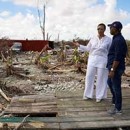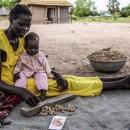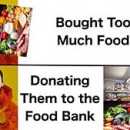Friday, June 9, 2023
News and Views from the Global South
Financial Crisis
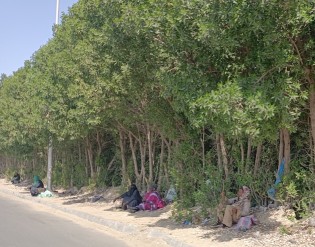
As Game of Thrones Rages in Sudan, the Neighbors Pay the Price
The conflict in Sudan is impacting the economy in Egypt, and those who make their living moving goods across the borders have spent weeks hoping the situation will normalize.
Reserve Bank of Australia Review Fails Ordinary Australians
The Reserve Bank of Australia (RBA)’s latest interest rate hike comes before the ink of the much-awaited review of the RBA, released on 20 April, has dried. The threat of more increases to come is a clear sign of an emboldened RBA as the government accepts all of the panel’s utterly disappointing 51 recommendations.
Women’s Cooperatives Work to Sustain the Social Fabric in Argentina
Nearby is an agroecological garden and a plant nursery, further on there are pens for raising pigs and chickens, and close by, in an old one-story house with a tiled roof, twelve women sew pants and blouses. All of this is happening in a portion of a public park near Buenos Aires, where popular cooperatives are fighting the impact of Argentina's long-drawn-out socioeconomic crisis.
Privatization: Egypt’s Only Weapon To Survive the Repercussions of the War in Ukraine
Egypt intends to sell shares in 32 state-owned businesses within a year, including three banks, two military-owned businesses, and numerous businesses in the energy and transportation sectors. This is part of the administration's efforts to reduce the role of the state in the economy and attract foreign capital.
The Crisis Is Becoming Chronic, Fragmenting Society in Argentina
It’s a Monday morning in April on Florida, a pedestrian street in the heart of the Argentine capital, and a small crowd gathers outside the window of an electronic appliance store to watch a violent scene on a TV screen. But it is not part of any movie or series.
Nigeria’s Unbanked, Poor Get Reprieve After Court Rules Naira Deadline Unconstitutional
Nigerians confronted by hardships over the scarcity of the newly redesigned naira notes in conjunction with the country's cashless policy introduced by the apex bank have had a last-minute reprieve from a policy that had disrupted their lives and exacerbated hunger.
Rising Food Prices, Ongoing Energy Crisis Place South Africa at Risk
South Africa’s almost record level food price inflation, load shedding, rising energy costs, and further fuel and interest rate hike forecast have eroded workers’ disposable incomes and further disadvantaging the poor – leaving analysts predicting that the country was at heightened risk, including civil unrest.
Australia Leads Against Large Multinational Corporations’ Tax Dodging
Australia is set to become the first country or jurisdiction to require large multinational corporations (MNCs), with a global consolidated income of at least AU$1 billion, to publicly report country-by-country (CbC) tax information. The new Labor Government announced on 25 October, 2022 in its budget paper that MNC’s public CbC tax reporting will begin from 1 July, 2023. Australia’s public CbC reporting rules will apply to all companies headquartered in Australia and companies headquartered elsewhere with sufficient nexus in the country.
US Policies Slowing World Economy
Few policymakers ever claim credit for causing stagnation and recessions. Yet, they do so all the time, justifying their actions by some supposedly higher purpose.
The Year of Debt Distress and Damaging Development Trade-Off
As the year 2022 drew to an end, the United Nations Conference on Trade and Development (UNCTAD) warned, “Developing countries face ‘impossible trade-off’ on debt”, that spiralling debt in low and middle-income countries (LMICs) has compromised their chances of sustainable development.
Africa Wants IMF Special Drawing Rights Re-Allocated to Finance Its Development
African countries, many reeling under high debt and experiencing economic recession, could benefit from the reallocation of Special Drawing Rights (SDR), financial instruments of the International Monetary Fund (IMF).
The Year of Inflation Exposes Dogma and Class Bias
Inflation worries topped Ipsos’s What Worries the World survey in 2022 overtaking COVID concerns. The return of inflation caught major central banks, e.g., the US Federal Reserve (Fed), Bank of England, European Central Bank “off guard”. The persistence of inflation also surprised the International Monetary Fund (IMF). The return of inflation and its persistence exposed the poverty of the economics profession, unable to agree on its causes and required policy responses. It also exposed the profession’s anti-working class biases.
New Political Agreement Finally Tackles Venezuela’s Social Crisis
The social crisis and humanitarian emergency in Venezuela became international headline news again once the government and the opposition, bitter adversaries for two decades, agreed to direct three billion dollars in state funds held abroad to social programs.
Needed Global Financial Reforms Foregone yet Again
Calls for more government regulation and intervention are common during crises. But once the crises subside, pressures to reform quickly evaporate and the government is told to withdraw. New financial fads and opportunities are then touted, instead of long needed reforms.
Open Veins of Africa Bleeding Heavily
The ongoing plunder of Africa’s natural resources drained by capital flight is holding it back yet again. More African nations face protracted recessions amid mounting debt distress, rubbing salt into deep wounds from the past. With much less foreign exchange, tax revenue, and policy space to face external shocks, many African governments believe they have little choice but to spend less, or borrow more in foreign currencies.
Developing Countries Need Monetary Financing
Developing countries have long been told to avoid borrowing from central banks (CBs) to finance government spending. Many have even legislated against CB financing of fiscal expenditure. Central bank fiscal financing Such laws are supposedly needed to curb inflation – below 5%, if not 2% – to accelerate growth. These arrangements have also constrained a potential CB developmental role and government ability to respond better to crises.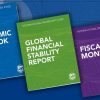
While Developing Nations Hang on to a Cliff’s Edge, G20 & IMF Officials Repeat Empty Words at Their Annual Meetings
Held in-person for the first time in three years, the annual meetings of the International Monetary Fund and World Bank last week in Washington, D.C. failed to offer solutions to the dozens of developing countries in debt distress or on the forewarned global recession instigated by monetary tightening.
Macroeconomic Policy Coordination More One-Sided, Ineffective
Widespread adverse reactions to the UK government’s recent ‘mini-budget’ forced new Prime Minister Liz Truss to resign. The episode highlighted problems of macroeconomic policy coordination and the interests involved.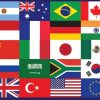
Austerity: A Raging Storm for the Developing World that can be Avoided
Finance ministers of the G20 and the world met in Washington, October 10-16, to discuss how to navigate multiple crises, including rising cost-of-living, broken global supply chains, climate shocks, and the lingering COVID-19 pandemic.
Time is Running Out for Decisions on Debt Relief as Countries Face Escalating Development Crisis
Developing low- and middle-income economies are taking hard hits from global economic developments outside their control. Monetary tightening in advanced economies coupled with increasing fears of a global recession have weakened currencies, sent interest rates soaring, and investors fleeing.
Stop Worshiping Central Banks
Preoccupied with enhancing their own ‘credibility’ and reputations, central banks (CBs) are again driving the world economy into recession, financial turmoil and debt crises.Next Page »


